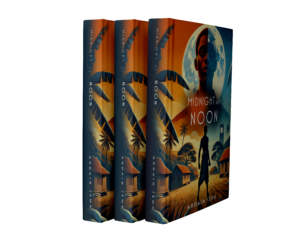
right hand and orange pencil / cartoon vector and illustration, hand drawn style, isolated on white background.
Literary fiction, with its depth, complexity, and nuanced storytelling, has long captivated readers and contributed to cultural discourse. Beyond its allure to general readers, literary fiction also plays a significant role within academic circles. This article explores the multifaceted role of literary fiction in academia, shedding light on its impact in expanding horizons, fostering critical thinking, and promoting empathy.
Broadening Perspectives and Cultural Understanding
Literary fiction serves as a vehicle for exploring different perspectives, cultures, and historical contexts. Academic institutions value the study of literary fiction for its ability to offer insights into diverse human experiences. Through literary works, students are exposed to a wide array of characters, settings, and narratives that reflect various societies, time periods, and cultures. By immersing themselves in these stories, readers develop a more nuanced understanding of the complexities of the human condition and gain empathy for others.
Literary fiction often delves into profound social issues, such as racism, gender inequality, and socioeconomic disparities. Analyzing and discussing these themes in an academic setting encourages students to confront uncomfortable truths and consider alternative viewpoints. By engaging with literary works that tackle social issues, students are encouraged to question and challenge prevailing norms, fostering a more critical and informed approach to societal problems.
Enhancing Critical Thinking and Analysis
The study of literary fiction in academia sharpens critical thinking skills. Close reading and textual analysis require students to delve beyond surface-level interpretations and explore the deeper layers of meaning within a literary work. Analyzing character motivations, narrative techniques, and themes demands attention to detail, fostering analytical skills that extend beyond the realm of literature.
Moreover, literary fiction often presents complex narratives that defy easy interpretation. Students must grapple with ambiguity, multiple perspectives, and unresolved questions. This process nurtures their ability to think critically, weigh evidence, and construct well-reasoned arguments. These skills are invaluable in academic disciplines that require nuanced analysis and the ability to consider multiple viewpoints.
Cultivating Empathy and Emotional Intelligence
Literary fiction has the power to evoke deep emotions and create an emotional connection between readers and characters. Academic exploration of literary works allows students to develop emotional intelligence and empathy. By engaging with characters facing various challenges, readers are invited to put themselves in the shoes of others, expanding their capacity for compassion and understanding.
This emotional engagement with literary fiction extends beyond the academic setting. Empathy and emotional intelligence are qualities highly valued in professional and personal contexts. The study of literary fiction, therefore, equips students with essential skills for effective communication, interpersonal relationships, and navigating diverse social environments.
Finally, I can confer that literary fiction occupies a significant place in academia, offering students a rich tapestry of narratives, perspectives, and themes. Its role extends beyond mere entertainment, as it cultivates critical thinking, broadens perspectives, and fosters empathy. Through the study of literary fiction, academia embraces the power of storytelling to shape and challenge our understanding of the world. By exploring the complex characters and themes found within these works, students are equipped with the tools necessary to navigate the complexities of society and contribute meaningfully to their academic pursuits and beyond.
Note: This article was published by Ardain Isma in CSMS Magazine. Ardain Isma is chief editor of CSMS Magazine. He is a scholar, essayist, and novelist. He is the author of several critically-acclaimed books, including Midnight at Noon and Bittersweet Memories of Last Spring. His latest novel Last Spring was Bittersweet was released on July 28th. You can order by clicking this link: Last Spring was Bittersweet.



